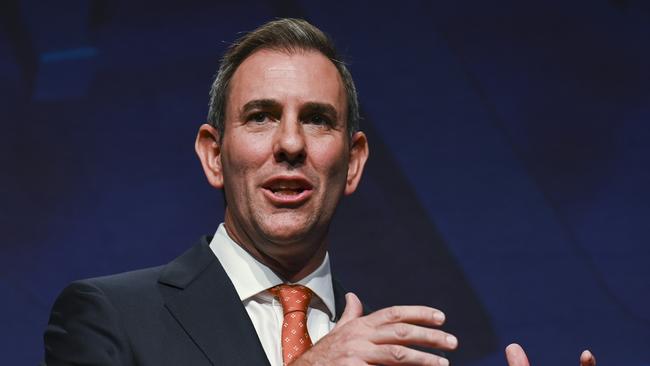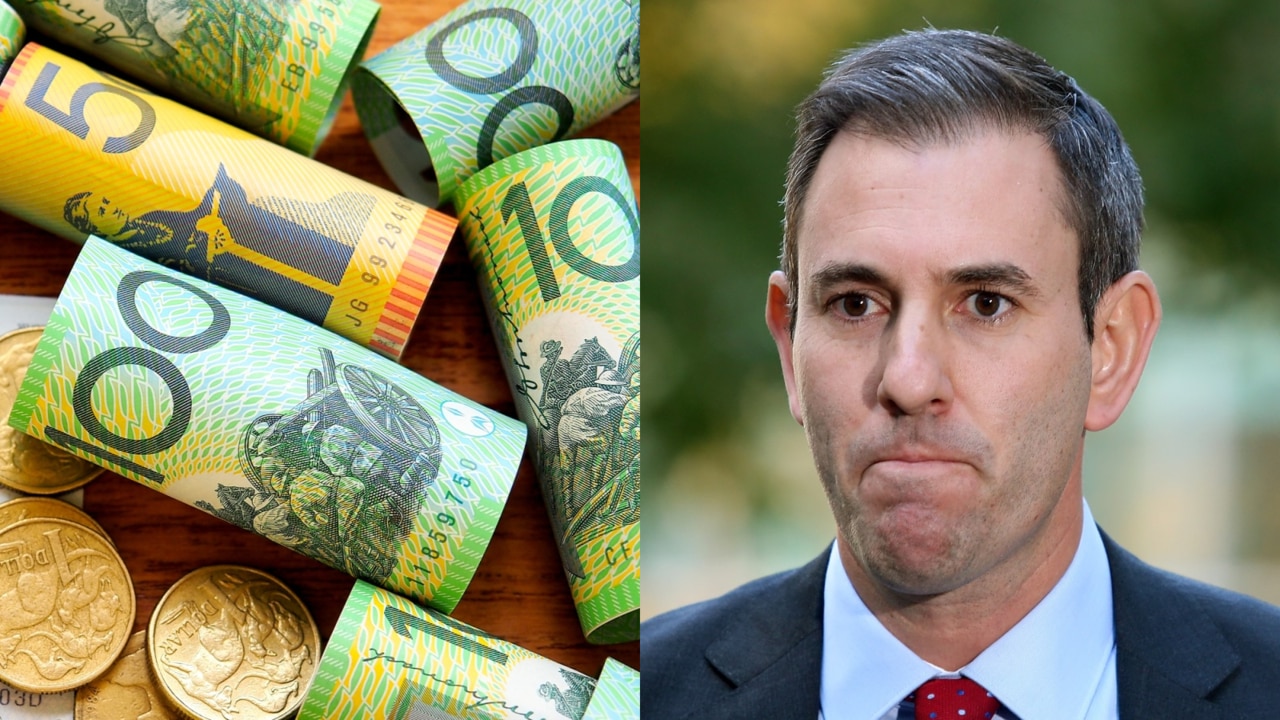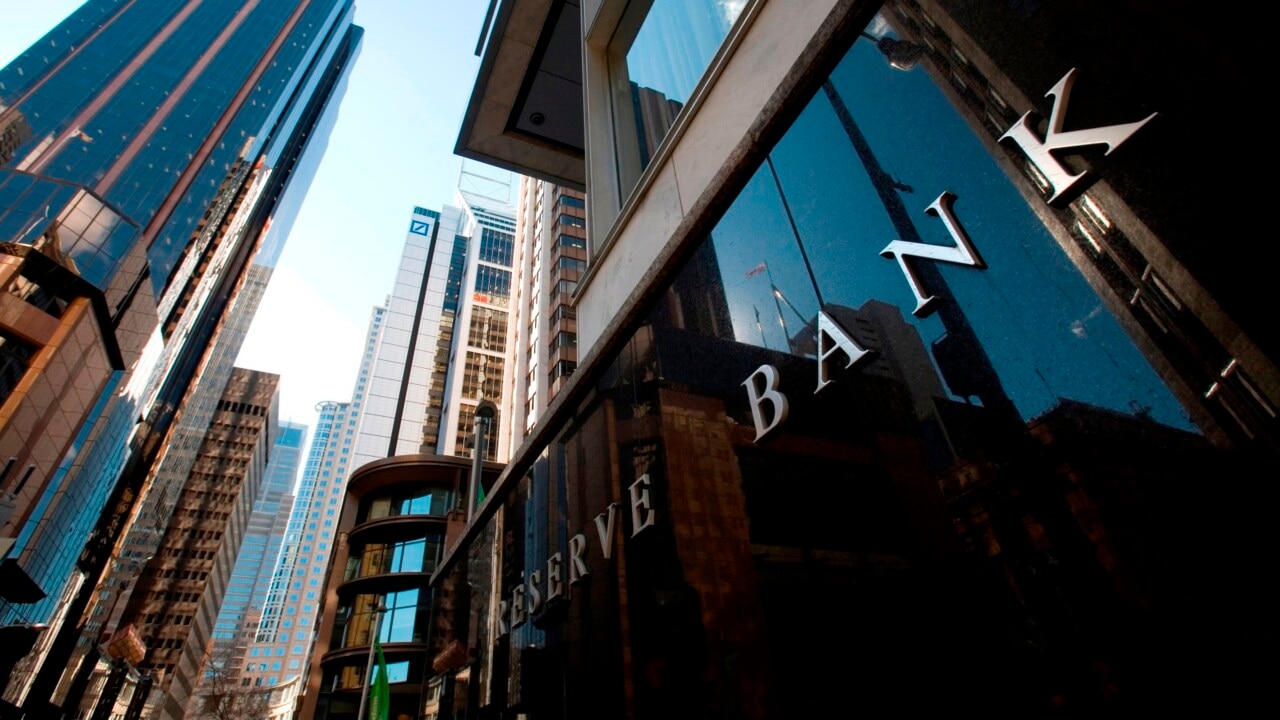Federal budget 2023: We chose compassion and duty, says Jim Chalmers
Jim Chalmers has defended his ‘contractionary’ second budget from accusations that it has made the Reserve Bank’s inflation fight harder.

Jim Chalmers has defended his “contractionary” second budget from accusations that it has made the Reserve Bank’s inflation fight harder, saying the government has not had to choose between compassion and fiscal responsibility.
A day after unveiling a $126bn improvement in the budget position over five years, including a $4.2bn surplus projected from this financial year, the Treasurer flagged there was no limit to the growing share of revenue generated from taxes over coming years as he again repudiated the Coalition’s discipline of a 23.9 per cent tax-to-GDP cap.
Tuesday night’s budget showed the former government’s cap would be reached in the coming financial year, before dropping to 23.3 per cent in each of the following four years as the legislated stage three tax cuts kick in from mid-2024.
Over the coming decade, however, tax-to-GDP would push as high as 24.4 per cent, the budget showed.
Dr Chalmers batted away questions around the government’s commitment to next year’s stage three tax cuts. “Our position … hasn’t changed. They weren’t a focus of the deliberations in this budget,” he said.
With workers losing billions of dollars to higher average tax rates as their wages grow into higher tax brackets, Dr Chalmers said “when you can afford to do it, you should look to return some of that bracket creep to people”.

“There is more than one way to return bracket creep … but I think it’s too often lost that the tax cuts kick in at $45,000. There is relief in there for people on lower and middle incomes as well as people on higher incomes. And I think it’s important where we can that we provide relief to those people.”
Dr Chalmers said the country’s fiscal position was “much, much, much better” than envisaged in October, after allowing more than 80 per cent of the windfall from a stronger than expected economy and high commodity prices to fall to the bottom line.
“Some will always argue there was too much (spending), others will argue there was too little,” he said.
“We have begun the journey to budget repair, but big structural pressures remain.”
Dr Chalmers said the government should be given credit for taking the “hard decision” to bank the bulk of the massive revenue upgrades.
“I reject the idea that there is something automatic about the restraint that we showed in the budget. There are hard decisions associated with not spending much at all of the upward revision in revenue,” he said.

“It doesn’t feel ‘self-healing’ when you’re sitting around the expenditure review committee table and colleagues have got terrific ideas, and you’ve got to work out what you can afford to spend because your overwhelming priority is spending restraint, to fix the budget to avoid these debt interest payments as much as you can.”
He said working with the states, the National Disability Insurance Agency, and players in the sector had allowed the government to cut $15bn off the projected cost of the NDIS over the coming few years.
Dr Chalmers again pointed to Treasury modelling that suggested Labor’s $14.6bn cost-of-living package, alongside other measures that will deliver $12bn in extra spending in 2023-24, would not add to inflation, and in fact was deflationary.
“Our budget is contractionary when inflation is at its highest – the result of our efforts to improve the fiscal position by around $125bn over two years since coming to government,” he said.
The Treasurer cited three reasons that the extra spending announced on Tuesday would not pour further fuel on the inflationary fire, including Treasury estimates that the energy price relief package would cut three-quarters of a percentage point off consumer price growth over the coming 12 months.

“One, of the total spending we announced for next year, more than one-quarter of the net impact relates to keeping existing government programs going and extending pandemic support,” he said.
“Two, in total, the targeted relief we’re delivering in 2023-24 costs around 0.1 per cent of GDP.
“And three, it’s been designed to provide effective, meaningful relief to households throughout the year – not in one big hit.
“For all these reasons, the Treasury advice to us was that none of what we’re doing here will have a counter-productive impact.”








To join the conversation, please log in. Don't have an account? Register
Join the conversation, you are commenting as Logout